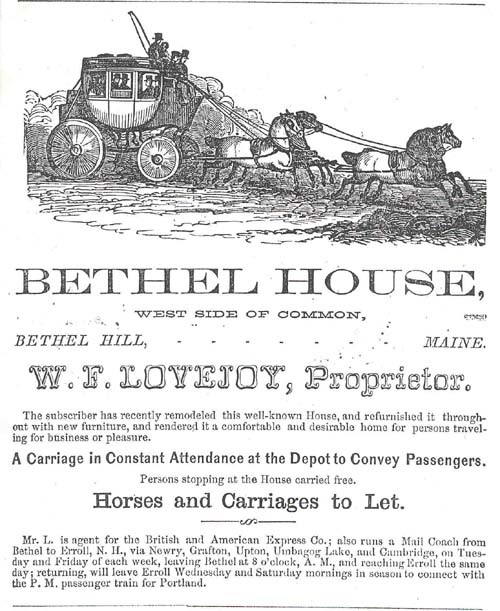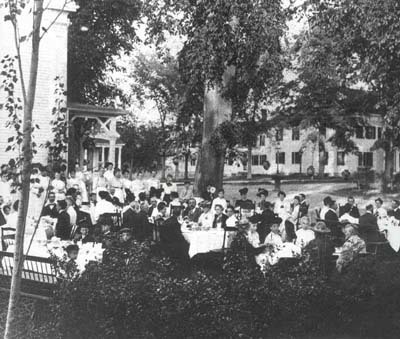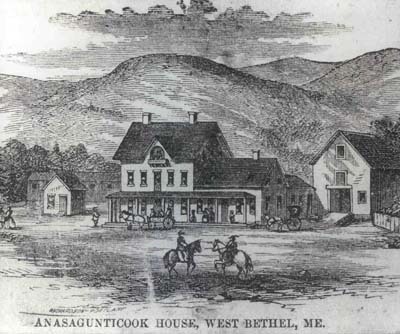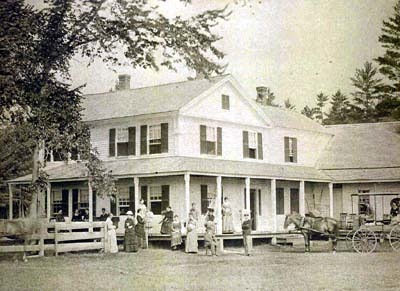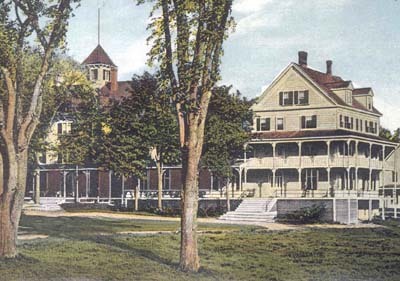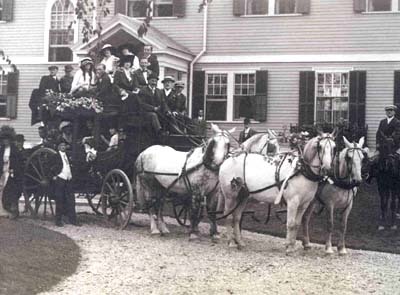A Fashionable Retreat
The Bethel House was constructed in 1833 as the first of several large wooden hotels facing onto the Bethel Hill Common. Even before the railroad's arrival in 1851, Bethel had established itself as a popular stopping-off place for travelers.
Bethel evolved into a much-favored inland watering spot for the well-to-do between the Civil War and World War I. In this circa 1900 photograph, a large group of elegantly-attired gentlemen and ladies prepare for a soiree on the lawn of "The Howard," at the north end of the Bethel Hill Common. The O'Neil Robinson House, now owned by the Bethel Historical Society, appears in the right background.
One of several medium-sized hotels that catered to the tourist trade in Bethel a century and a half ago, the Anasagunticook House was erected in 1859 by John S. Chapman on an elevated site opposite and a little downriver from West Bethel village. Active through the 1870s, the hotel boasted a chalybeate spring (one containing salts of iron) known widely for its restorative powers.
Long the home of the Valentine family, Spring Grove Farm on the North Road just west of Mayville furnished summer sojourners of the 1880s and 1890s with a quiet retreat that was only a few minutes ride by wagon from the Grand Trunk Railway station. Many of Bethel's visitors found the privacy and rural settings of such farms preferable to the village hotels then available.
The Prospect Hotel was Bethel's largest nineteenth century hostelry. Begun in 1863, the hotel faced north from a site very near the present Bethel Inn. From its rooftop cupola, five stories above the ground, guests could take in an unobstructed view of the surrounding mountains. The building was largely destroyed by fire in 1911.
What may be the former Prospect Hotel "tally-ho coach" appears in front of the recently completed Bethel Inn around 1915. Once utilized to carry travelers throughout the hills of western Maine and northern New Hampshire, such conveyances lingered on as private hotel vehicles even after the automobile's appearance. Special occasions and outings, like that shown here, represented the final flourish of the stagecoach era in and around Bethel.

